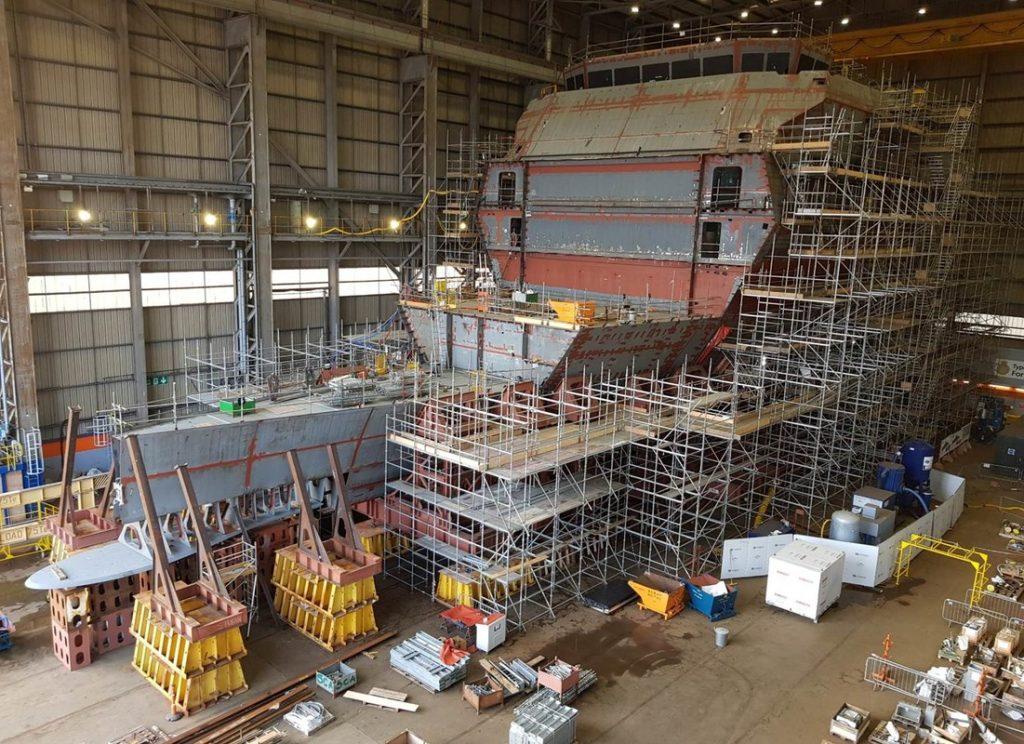
Sea state
On Tuesday, British Prime Minister Rishi Sunak confirmed a £4.2 billion contract to BAE Systems, a defence, aerospace and security company, to build five Type 26 frigates for the Royal Navy. The contract, along with three warships already under construction, is expected to be completed by the mid-2020s. The Type 26 is the reference design from which Australia’s Hunter-class frigate is being developed. The new fleet will increase the navy’s anti-submarine capacity and protect the British nuclear deterrent at sea. In addition, according to a statement by Sunak’s office, the project will facilitate 1,700 jobs at BAE sites in Scotland over the coming decades.
A US federal court last week sentenced former US Navy engineer Jonathan Toebbe to 19 years and his wife Diana Toebbe to almost 22 years in prison for conspiring to communicate restricted data related to the design of nuclear-powered warships. In a criminal complaint detailing the charge, the government said that the Toebbes repeatedly sold the nation’s critical secrets to an FBI agent they believed to be a foreign government representative. The judge said in court that the couple posed a ‘great danger’ to US security.
Flight path
Australia is set to double the size of its C-130J Super Hercules fleet after the US government approved a $10 billion sale of 24 new airlifters. The deal will replace the current fleet of 12 with the upgraded Hercules, which possess a suite of defensive countermeasures. The expansion will also fill the gap left by Australia’s decision to use its 10 C-27J Spartan transports in non-combat roles. Ultimately, the expansion of the medium mobility fleet will improve Australia’s airlift and operational capabilities.
North Korea has flown 180 military aircraft near the South Korean border in protest at the extension of joint South Korean – US military exercises. The aerial sorties came after Pyongyang’s recent test-firing of around 30 ballistic missiles and firing of 80 artillery rounds into a maritime buffer zone. South Korea responded to the aerial exercise by scrambling 80 jets, including F-35As. While it’s yet to be determined which North Korean aircraft were used from its fleet of some 900 mostly obsolete combat aircraft, the latest show of strength marks a clear escalation in tensions.
Rapid fire
Ukraine’s southern coast witnessed a key military milestone this month as Russian forces abandoned the port city of Kherson after eight months of occupation. On social media, jubilant Ukrainian soldiers can be seen tearing down the city’s many pro-Russian propaganda billboards. Witnesses also report that Russian soldiers, trapped in Kherson by their comrades’ destruction of the Antonivsky bridge, resorted to disguises in an effort to evade capture. Russia’s latest retreat highlights the ‘dire’ challenges facing a Russian army effectively crippled by personnel and equipment losses throughout Ukraine’s east.
The Australian Defence Force has responded to mechanical faults identified in the brake systems of its ‘Hawkei’ tactical vehicles by enforcing strict speed limits and banning the vehicles from public roads. Defence recently spent around $1 billion replacing its ageing Land Rover fleet with 1,100 of Thales’ state-of-the-art lightweight protected mobility vehicles, only for them to be persistently sidelined by mechanical faults.
Final frontier
The US military’s uncrewed reusable spaceplane, X-37B Orbital Test Vehicle-6, has finished its sixth mission after a record 908 days in orbit. It is jointly operated by the US Space Force and the Air Force Capabilities Office, and carried out several military and NASA science experiments while in flight. The ability to conduct on-orbit experiments followed by analysis on the ground after the vehicle’s return is valuable for the scientific community.
Divers filming a documentary off the coast of Florida have discovered a large piece from the Challenger space shuttle. The Challenger exploded and broke apart shortly after its launch in 1986, killing all seven crew members in one of NASA’s worst disasters. NASA is determining whether it’s possible to recover the wreckage and what additional steps can be taken to honour the astronauts’ legacy. The discovery is a reminder of the focus NASA has placed on safety and risk assessment after the accident.
Wired watchtower
A spyware campaign targeting members of the Uyghur communities in China and abroad was linked to a Chinese-government-backed hacking group. Hidden in nearly a third of Uyghur-language Android apps since July, the spyware was used to collect sensitive data including location, contacts, and text messages, and was intended to detect ‘pre-crimes’ within the Uyghur population. This is merely the latest development in Beijing’s efforts to suppress the population after being found to have perpetrated serious human rights violations against them and conducting mass surveillance of Uyghurs in Xinjiang.
After a deluge of cyberattacks, Australia is implementing multiple reforms to better protect personal data. A newly established joint cyber taskforce will launch an operation against the Russian hackers responsible for the Medibank data breach. Proposed reforms also include making paying ransoms to cyber hackers illegal and tightening the data-retention legislation for enterprises. The cyberattacks have shown that Australia’s cybersecurity industry was ill-prepared for the kind of cybercrime that has become the norm. The proposed reforms are a good place to start, but bolstering cyber defences is a top priority.